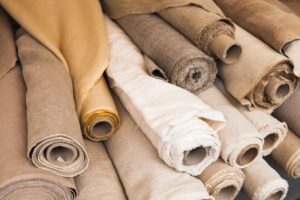There is no doubt that eco–friendly and sustainable textiles are on the rise. More and more people are looking for ways to reduce their environmental impact and choosing eco–friendly textiles is a solid choice.
Media Update: Specialty Fabric Review
Our CEO, D. Paul DiMaggio, Jr., discussed with Specialty Fabric Review the sustainability of non-wovens (in our case, needle-punched), and Delaware Valley’s pioneering efforts in eco-friendly bonding techniques, which have since become the industry standard.

 Eco-friendly and sustainable textiles are made from materials with a low environmental impact throughout their lifecycle. This includes the sourcing of raw materials, the manufacturing process, the use of the textile, and finally, the disposal or recycling of eco-friendly fabrics and textiles. Sustainable textiles are also designed to be durable and long-lasting, so they have a smaller ecological footprint over their lifetime.
Eco-friendly and sustainable textiles are made from materials with a low environmental impact throughout their lifecycle. This includes the sourcing of raw materials, the manufacturing process, the use of the textile, and finally, the disposal or recycling of eco-friendly fabrics and textiles. Sustainable textiles are also designed to be durable and long-lasting, so they have a smaller ecological footprint over their lifetime.